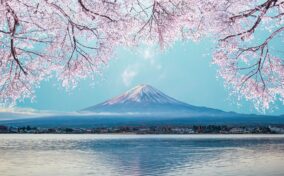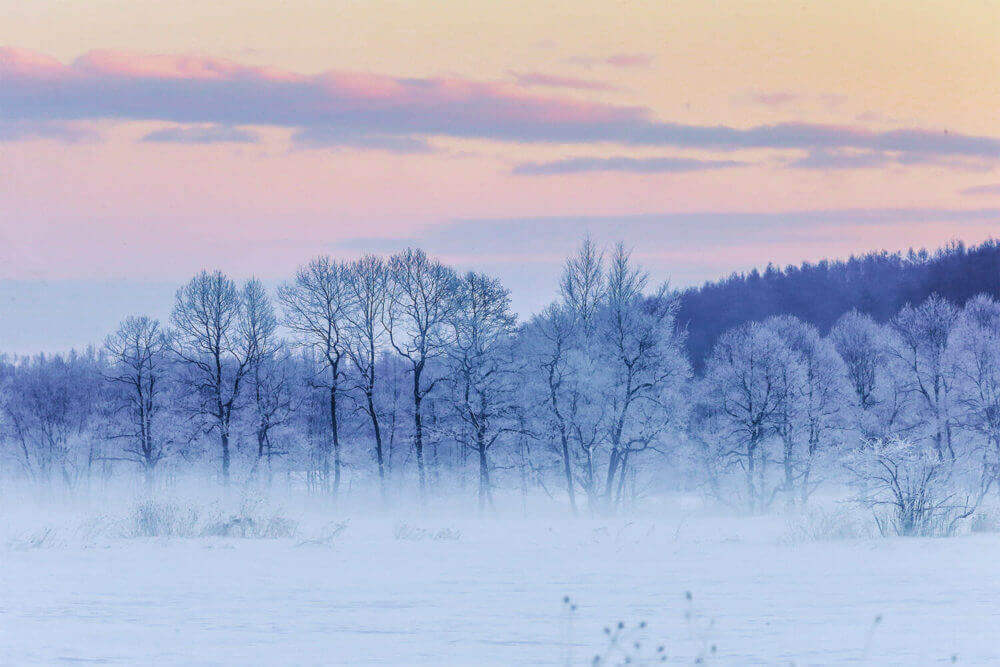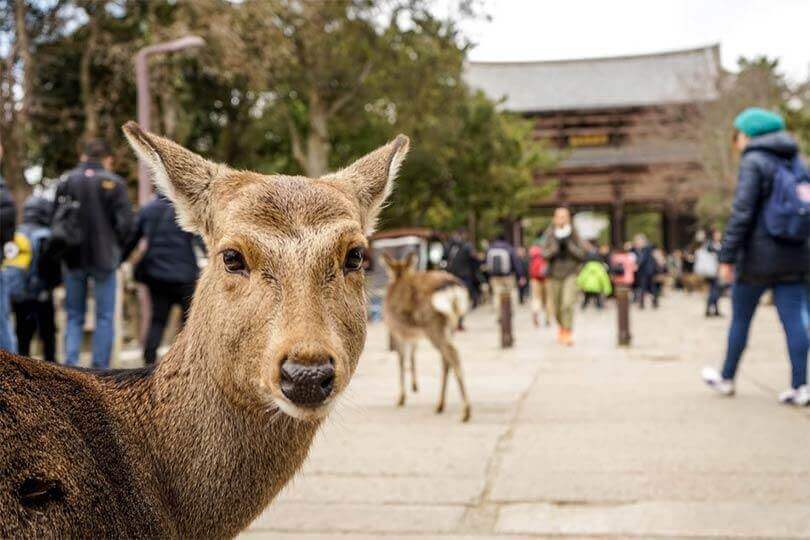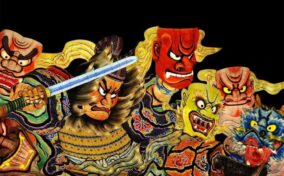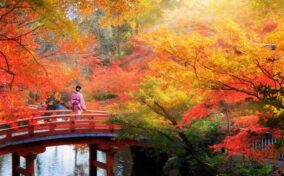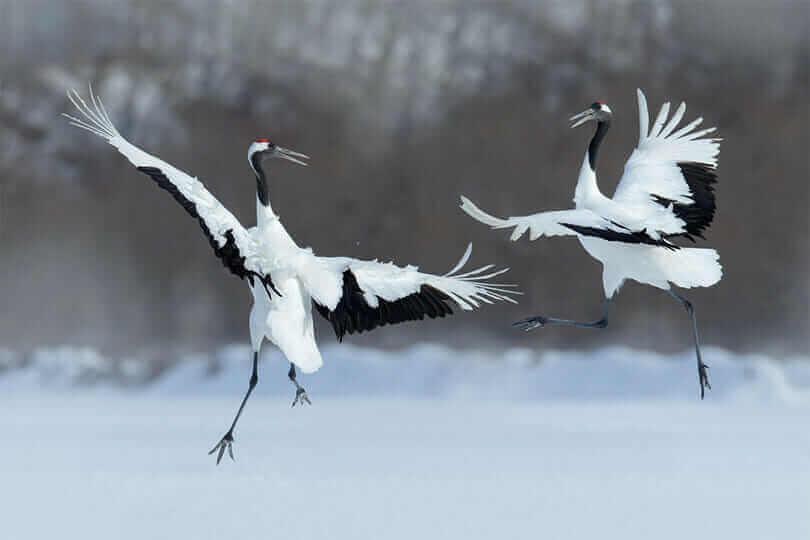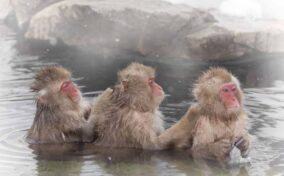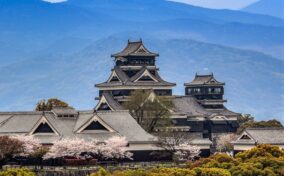Warning: Undefined variable $text in /home/japan77/japanicle.com/public_html/wp-content/themes/FALCON-child/functions.php on line 17
Japan has 16 public holidays.
If Sunday is a public holiday, the holiday will be the next weekday (usually Monday). *Please check the calendar below for this year’s public holidays in Japan.
Japan’s public holidays are most concentrated during the week from the end of April to the beginning of May. This week is called “Golden Week”.
There are also many holidays during the week from mid-September to late September. This week is called “Silver Week”.
School holidays are from the end of July to the end of August.
During these periods, Japanese people often travel, so please be aware that tourist spots around the country will be crowded.
Below, I will explain the dates of public holidays in Japan and their meanings.
Table of Contents
- New Year’s Day : January 1st
- Coming of Age Day : The second Monday of January
- National Foundation day : February 11th
- Vernal Equinox Day : Around March 21st
- Showa Day : April 29th
- Constitution Memorial Day : May 3rd
- Greenery Day : May 4th
- Children’s Day : May 5th
- Marine Day : The third Monday of July
- Mountain Day : August 11th
- Respect for the Aged Day : The third Monday of September
- Autumnal Equinox Day : Around September 23rd
- Sports Day : The second Monday of October
- Culture Day : November 3rd
- Labor Thanksgiving Day : November 23rd
- Emperor’s Day : December 23rd
New Year’s Day : January 1st
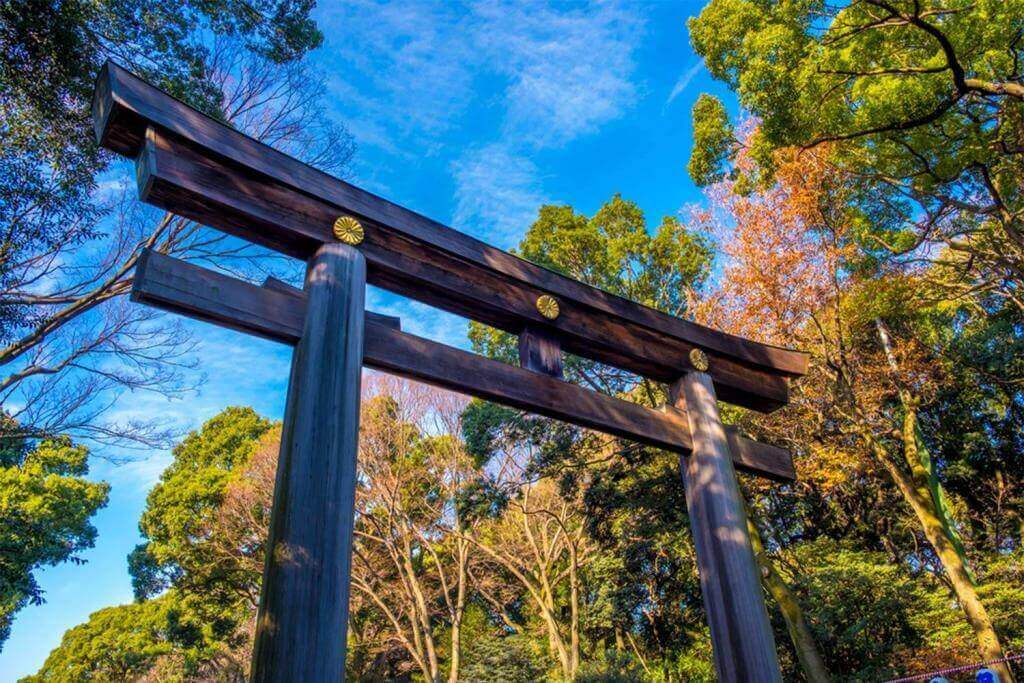
Torii gate at Meiji Jingu Shrine, Harajuku, Tokyo = Shutterstock
New Year is the most important holiday for Japanese people. Many people will take leave from
December 29th and spend time with family on New Year’s Day. People visit shrines or temples to pray for the new year.
Coming of Age Day : The second Monday of January
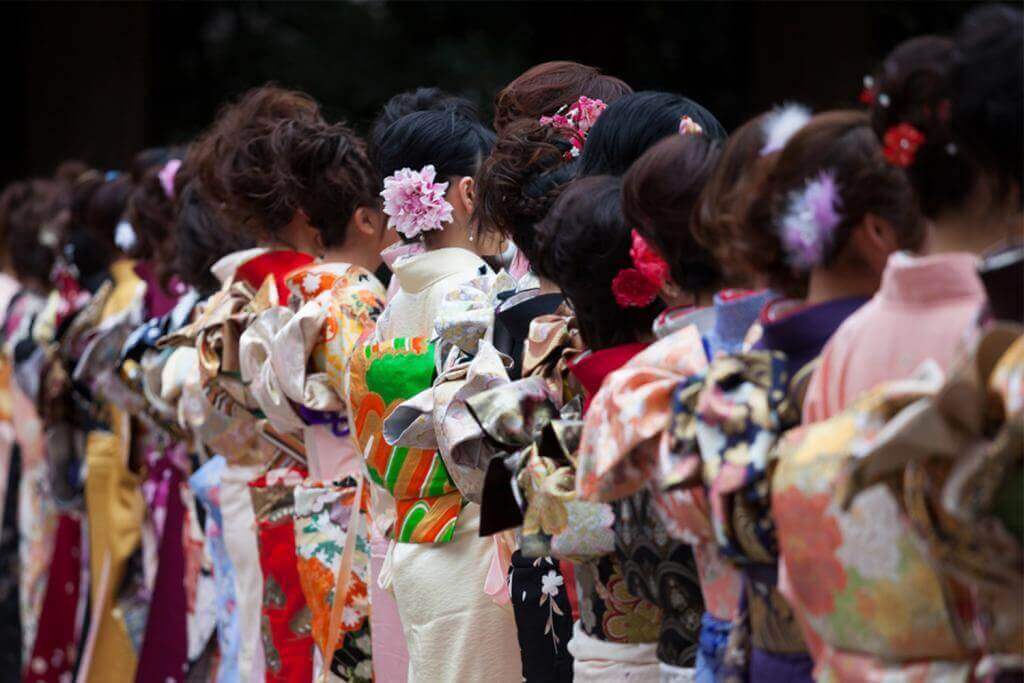
Young Japanese women wearing kimonos for the coming of age, to celebrate the year they turn twenty = Shutterstock
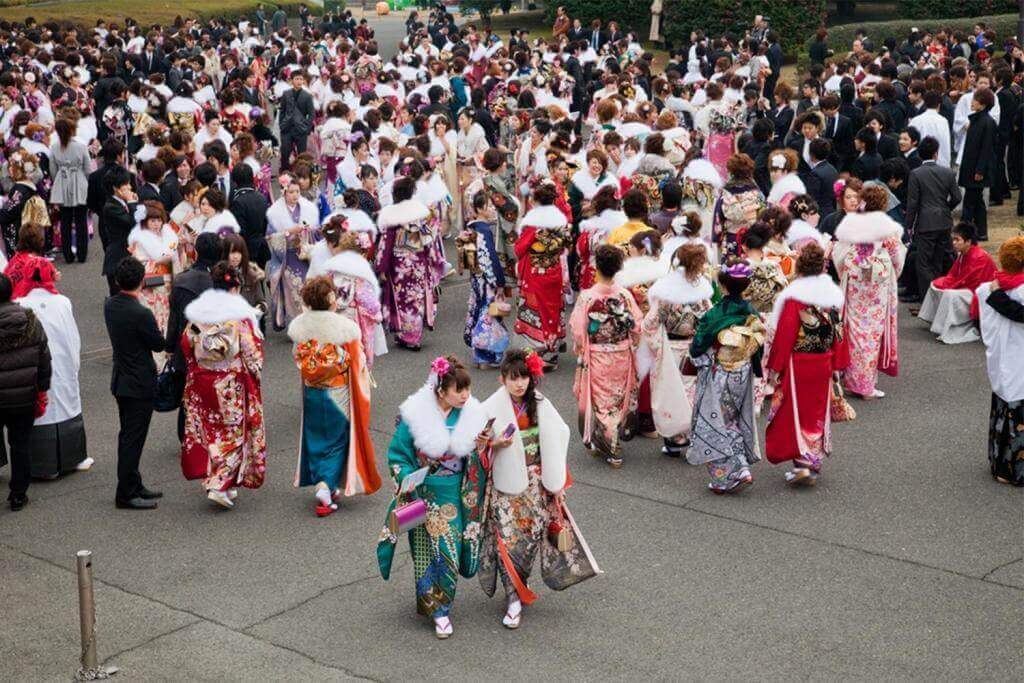
Women in kimono outside the culture center during Coming of Age Day celebrations in Kagoshima City, Japan = Shutterstock
On this day, the Japanese celebrate those who are 20 years old. Many municipalities celebrations in their honor. Young people wear Kimono or Suits and celebrate Coming of Age.
National Foundation day : February 11th
It is a day to celebrate the foundation of Japan. According to an old legend, Emperor Jinmu, the first emperor, was given the throne this day.
Vernal Equinox Day : Around March 21st
On this day, the lengths of the day and night are almost equal. Japanese people often visit the graves of their ancestors at this time.
Showa Day : April 29th
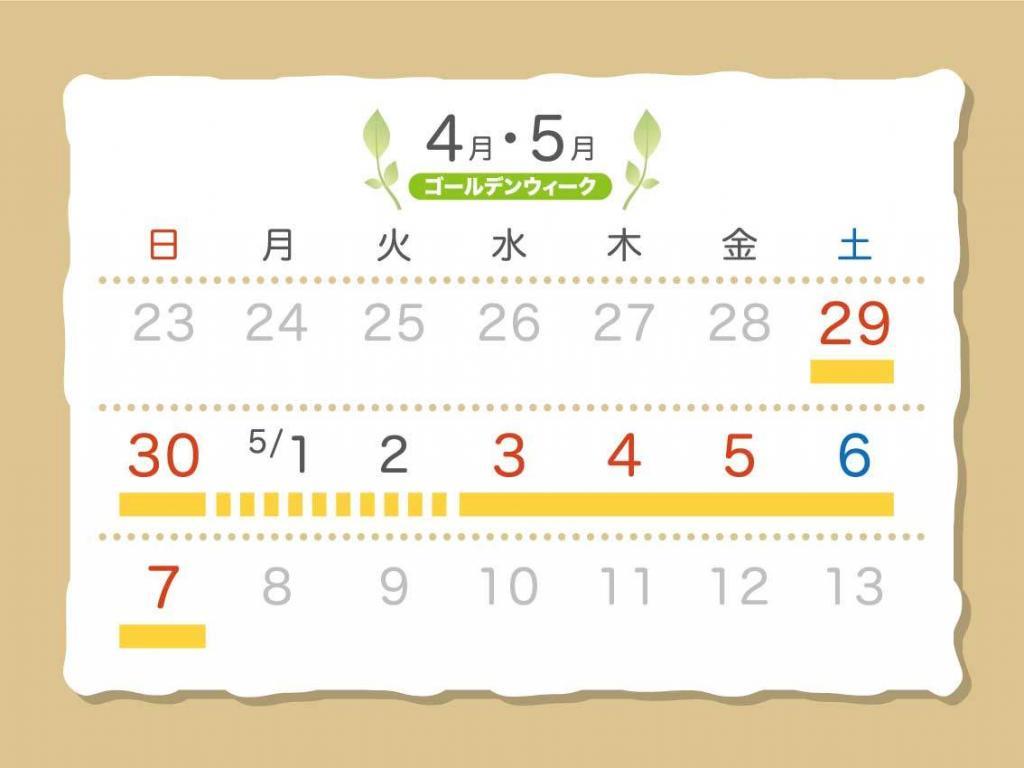
Calendar of national holidays as Golden Week in japan. In Japanese it is written “April and May”, “Sunday to Saturday ” and “Golden week holiday” = Shutterstock
Shōwa Day is a Japanese annual holiday.
Constitution Memorial Day : May 3rd
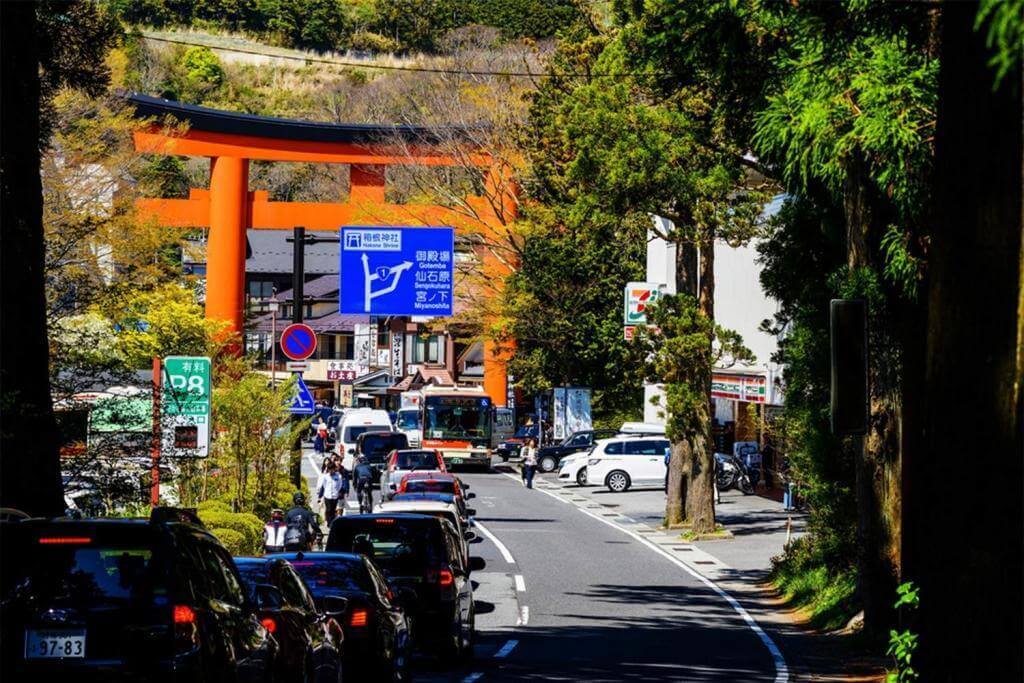
Traffic jam on street at Motohakone-ko around Hakone port due to Japan Golden Week = Shutterstock
On this day in 1947 the present Japanese constitution that values peace was enacted.
Greenery Day : May 4th
“Greenery Day” is a relatively new holiday. It was enacted to try to rest on May 4th between “Constitution Day” and “Children’s Day”.
Children’s Day : May 5th
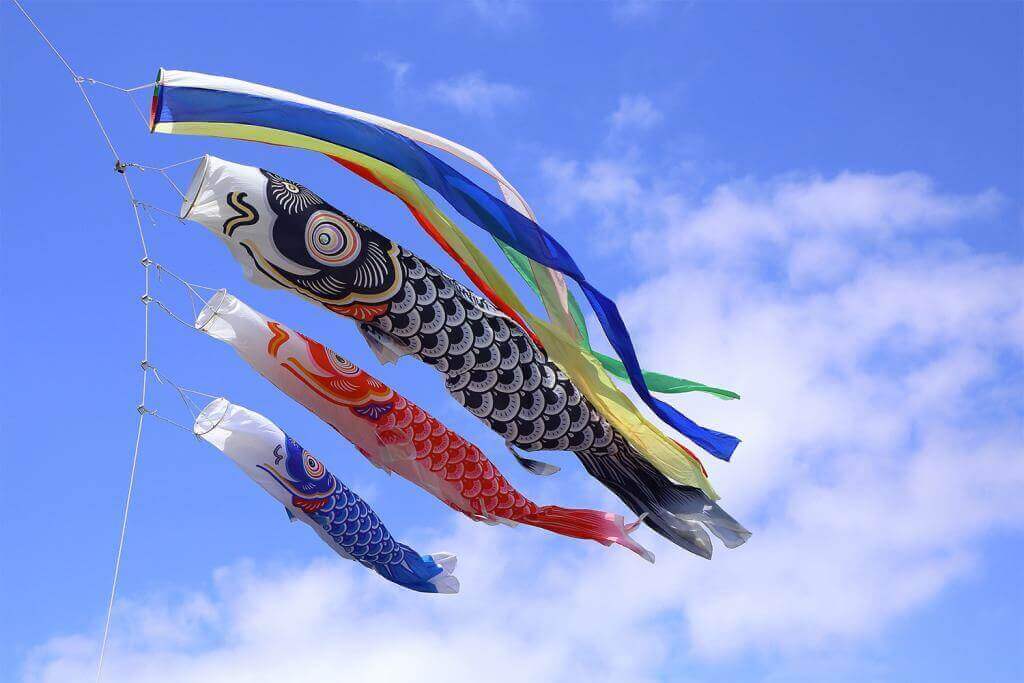
Japanese koinobori flags for Children’s day on blue sky background = Adobe Stock
Children ‘s Day was enacted in hopes of the healthy growth of children. In families with boys, people pray for their growth and set up a kind of flag called “Koinobori” in the garden. “Koinobori” comes from the legend of a carp becoming a dragon after cheerfully climbing a waterfall. The time from “Showa Day” to “Children’s Day” is called “Golden Week” in Japan. The weather is good during this time so many Japanese people will enjoy the outdoors.
Marine Day : The third Monday of July
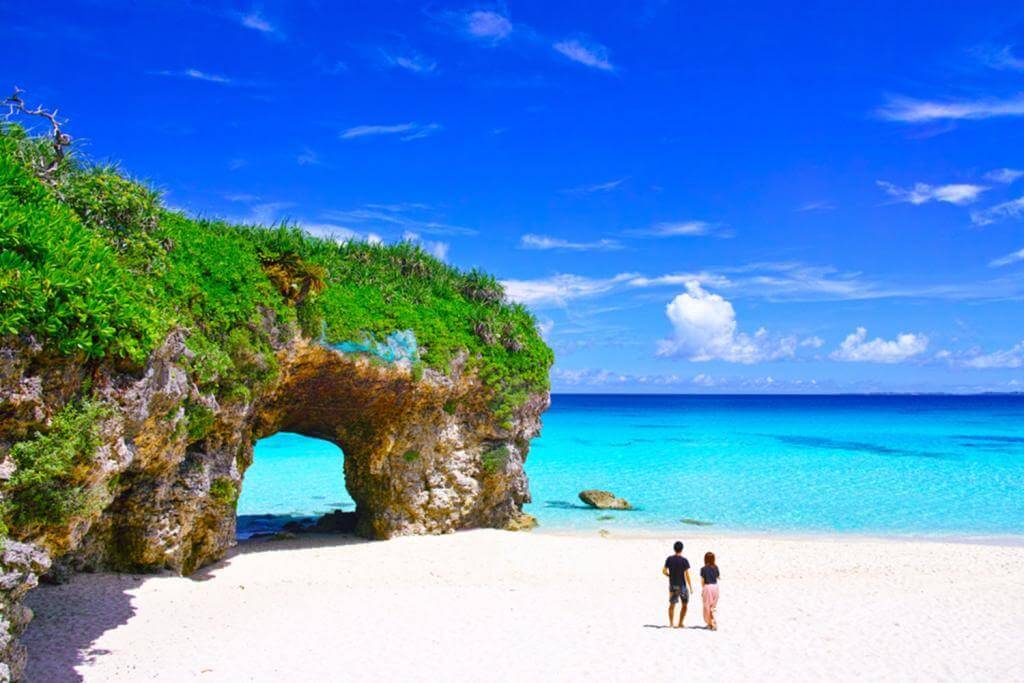
Miyakojima in summer. A couple watching the ocean at Sunayama beach = Shutterstock
“Marine day” was also recently enacted as a national holiday. Until then, there was no holiday in the month of July. This holiday was enacted so that Japanese people who are overworked can refresh properly in July.
Mountain Day : August 11th
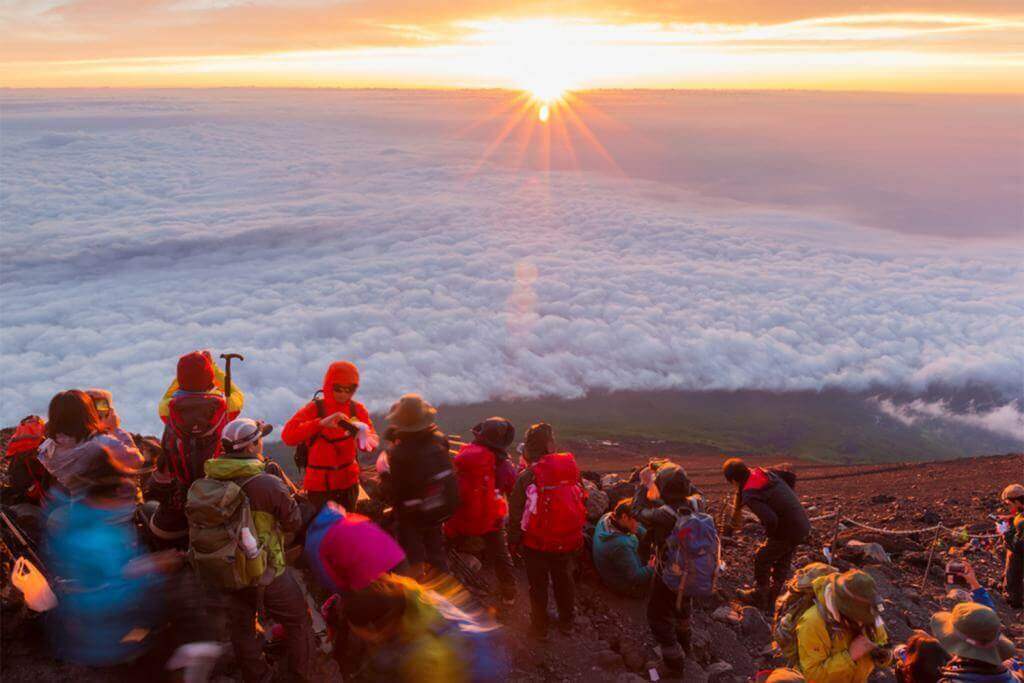
Crowds of climbers at the summit of Mt. Fuji. Most Japanese climb the mountain at night in order to be in a position at or near the summit when the sun rises = Shutterstock
In Japan, the period of time from August 13th to 15th is called “Obon”. During this period, many Japanese people will return home and spend time with their families. “Mountain Day” is a relatively new national holiday that aims to provide rest even before “Obon.”
Respect for the Aged Day : The third Monday of September
On this day, Japanese give gifts or make phone calls to old parents and grandparents.
Autumnal Equinox Day : Around September 23rd
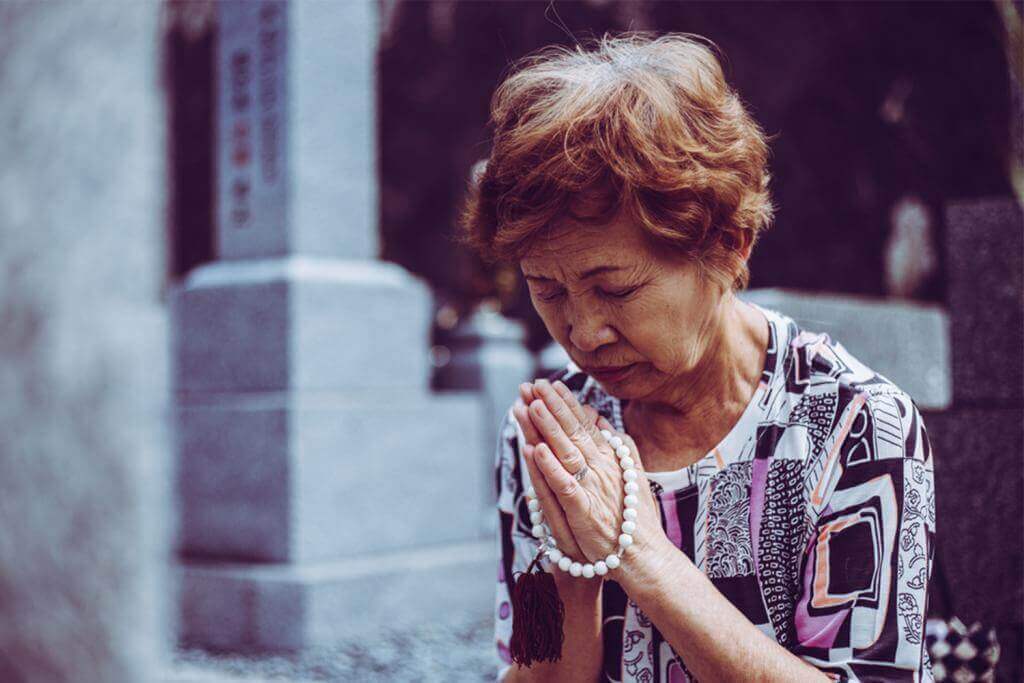
Japanese women of the elderly that visit the grave = Shutterstock
On this day, the lengths of the day and night are almost equal. From Respect for the Aged Day to the Autumnal Equinox Day there are many days to rest. This is why in Japan it is increasingly called “Silver Week”. In this period, there are many people who visit the grave of their ancestors.
Sports Day : The second Monday of October
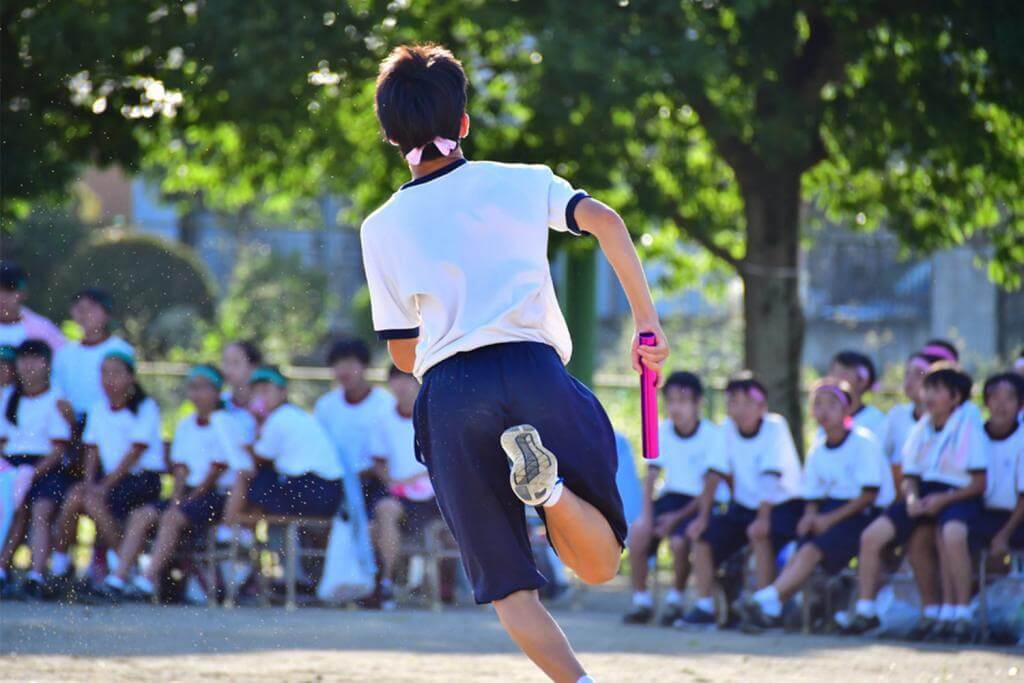
Students running in a field. Sports day in Japan = Shutterstock
“Sports Day” is a holiday enacted in commemoration of the Tokyo Olympics held in 1964. From this time on, the weather in Japan is very good.
Culture Day : November 3rd
It was enacted in commemoration of the fact that the Japanese Constitution was promulgated on November 3, 1946.
Labor Thanksgiving Day : November 23rd
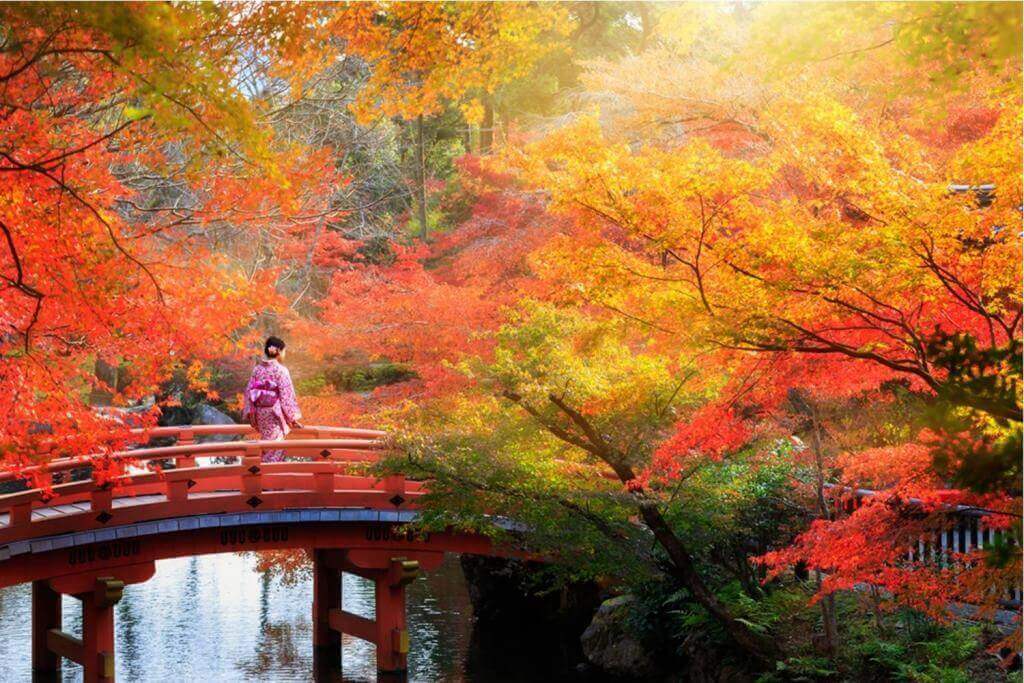
At this time, the autumn leaves in Kyoto and Tokyo are very beautiful. There are so many tourists around “Labor Thanksgiving Day” – Shutterstock
Japan, holding it’s agriculture of great importance, held ceremonies to appreciate God for harvest during this time for many years. Before the war there was a holiday named after this traditional ceremony. This is how Labor Thanksgiving Day came to be a national holiday.
Emperor’s Day : December 23rd
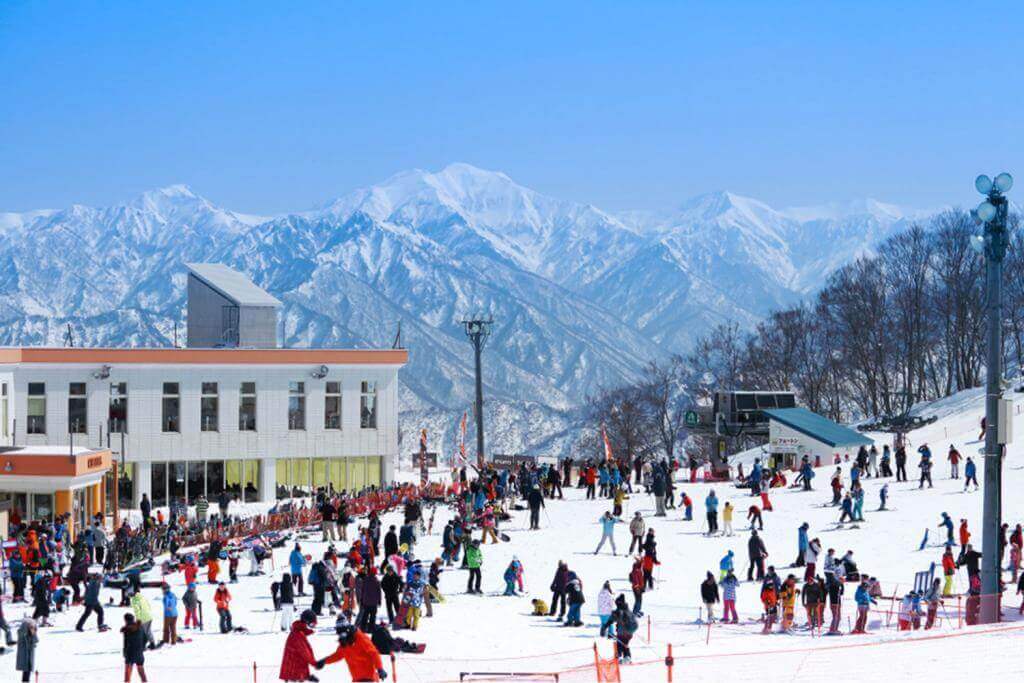
People enjoy playing snow, ski, snow boad, sled at Gala Yuzawa ski resort, Nigata plefecture, Japan = Shutterstock
It is the current Emperor ‘s birthday.
Thank you for reading to the end.
Now, let’s plan to make your vacation in Japan the best experience ever!

